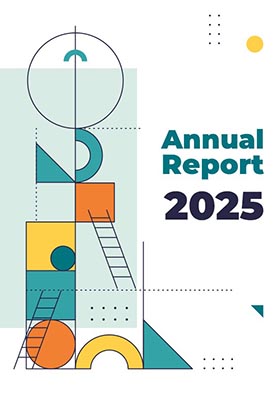Field of Research: Water treatment
Name of author) (s): Khalaf S., Al-Rimawi F., Khamis M., NirS., Scrano L., Bufo S.A.,Karaman R.
Title of published work: “Efficiency of membrane technology, activated charcoal, and a micelle-clay complex for removal of the acidic pharmaceutical mefenamic acid”
Name of Journal: International Case Studies Journal
Year: 2015
Volume: 4 (5)
Pages: 38-78
Publisher: Taylor & Francis
Abstract:
The efficiency of sequential advanced membrane technology wastewater treatment plant towards removal of a widely used non-steroid anti-inflammatory drug (NSAID) mefenamic acid was investigated. The sequential system included activated sludge, ultrafiltration by hollow fibre membranes with 100 kDa cutoff, and spiral wound membranes with 20 kDa cutoff, activated carbon and a reverse osmosis (RO) unit. The performance of the integrated plant showed complete removal of mefenamic acid from spiked wastewater samples. The activated carbon column was the most effective component in removing mefenamic acid with a removal efficiency of 97.2%. Stability study of mefenamic acid in pure water and Al-Quds activated sludge revealed that the anti-inflammatory drug was resistant to degradation in both environments. Batch adsorption of mefenamic acid by activated charcoal and a composite micelle (otadecyltrimethylammonium (ODTMA)-clay (montmorillonite) was determined at 25.0°C. Langmuir isotherm was found to fit the data with Qmax of 90.9 mg g(-1) and 100.0 mg g(-1) for activated carbon and micelle-clay complex, respectively. Filtration experiment by micelle-clay columns mixed with sand in the mg L(-1) range revealed complete removal of the drug with much larger capacity than activated carbon column. The combined results demonstrated that an integration of a micelle-clay column in the plant system has a good potential to improve the removal efficiency of the plant towards NSAID drugs such as mefenamic acid.
Keywords:
Anti-inflammatory drugs, wastewater, membrane technology, activated carbon, micelle-clay complex, adsorptionisotherms, mefenamic acid.
Contact author (s):
Name: Rafik Karaman, PhD.
Address: Al Quds University, Faculty of Pharmacy
E-mail: This email address is being protected from spambots. You need JavaScript enabled to view it.


